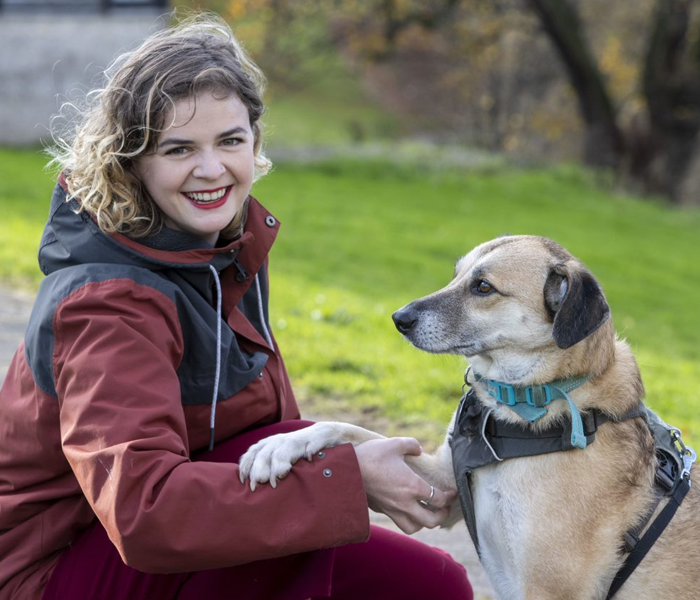Ellie Berry
MSc / MA Human-Animal Interaction
England

Ellie's Story
Ellie Berry, 27, from Bristol, had always loved animals. But she didn’t love science – so how could she ever work with animals?
Ellie Berry says she was “obsessed” with animals from a young age, but thought being a vet was her only option for turning her passion into a career, and she didn’t like maths or science.
“I liked languages, so I studied French for my first degree,” Ellie says, “but I wasn’t a very good student.”
Whilst teaching English on the French island of Reunion in 2017, she rescued a dog named Tiger, eventually finding a home for him in the French Alps. “I was heartbroken,” she says, “I cried when I put him on the plane, but something had become clear to me – I was going to have to work with animals.”
Ellie returned to the UK and moved to Edinburgh, where she got a job in admin and retail at Edinburgh Zoo. “At least I’d be near animals!” she says.
Then one day in July 2019, a chance encounter with a professor from the University of Stirling gave her a new hope. “Professor Hannah Buchanan-Smith was looking for the Gelada baboons and we got talking. She said she had just come out of an animal welfare meeting, and I was chatting about how I’d love to work in something like that, but I had a languages degree.
“She told me about the postgraduate degree she teaches at Stirling – Human Animal Interaction. She said it was interdisciplinary, so it can either be studied as an MA or an MSc.
“I went home and looked it up, and it was my dream degree!”
She studied for her MA in Human Animal Interaction part-time over two years, and is graduating with a distinction.
“I loved it at Stirling,” she says. “I met an amazing bunch of people. I was surrounded by people who loved animals, and I met a friend for life, Sarah. All the reading, lectures and discussion was exactly what I was interested in. The idea of animal rights, that humans should respect other species, is quite new really - I learned so much.
“Now, I’m looking for work in wildlife rehabilitation - taking care of animals that have been damaged by humans, but without habituating them. Given the effects humans are having on other species, it seems important work to do.”
